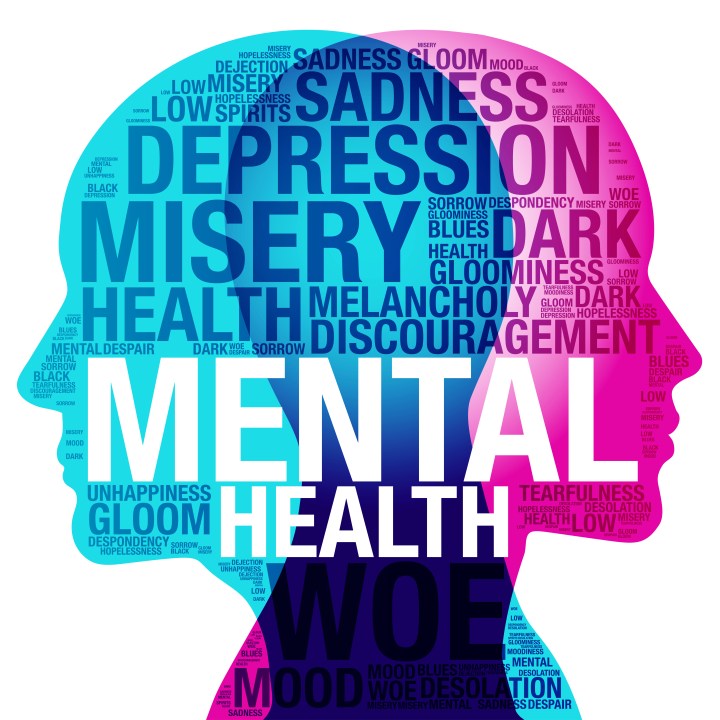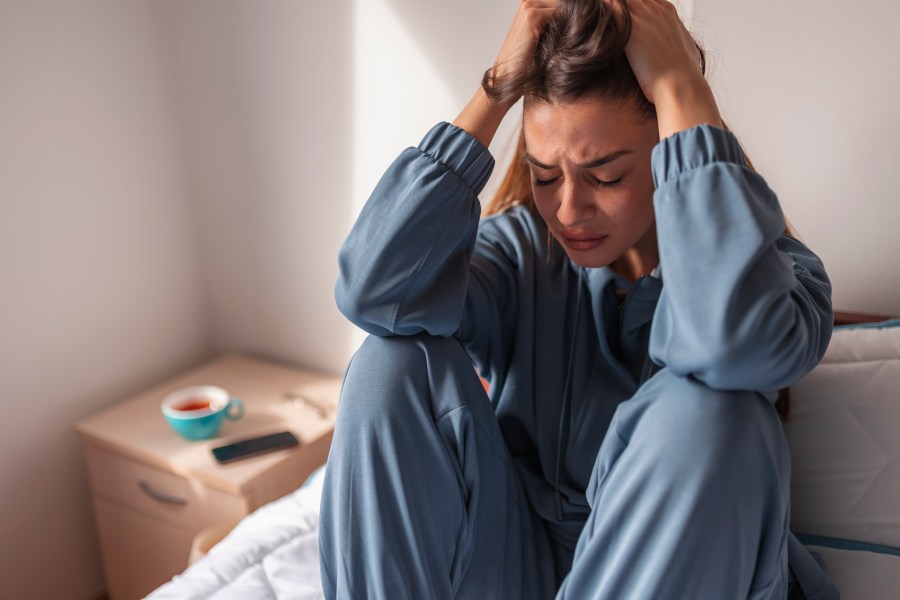Sleep is essential to our physical and mental health, yet it’s often elusive. For many people, hormonal changes can significantly impact the quality of their sleep. This article delves into the link between hormones and insomnia and offers tips for managing hormone-induced sleep issues.
Hormones that affect sleep
Hormones play a crucial role in regulating sleep-wake cycles. Melatonin, known as the sleep hormone, is produced by the pineal gland in the brain. It helps regulate the body’s circadian rhythm by signaling the brain that it’s time to sleep. Melatonin production increases in the evening as it gets dark outside, preparing the body for sleep. Cortisol, known as the stress hormone, is produced by the adrenal gland. High levels of cortisol at night can interfere with the body’s ability to fall asleep and stay asleep.
While the link between hormones and sleep is well-established, there are specific examples and research findings that can help illustrate the impact of hormonal changes on sleep quality.
For instance, a study published in the Journal of Sleep Research found that women in perimenopause and menopause who reported sleep disturbances had lower levels of the hormone estradiol, which is involved in regulating sleep.
Similarly, a study published in the Journal of Clinical Endocrinology & Metabolism found that men with sleep apnea and low testosterone levels had improved sleep quality after receiving testosterone replacement therapy.
Research has also shown that cortisol, the stress hormone, can interfere with sleep by disrupting the body’s natural circadian rhythm.
A study published in the journal Psychoneuroendocrinology found that individuals with high levels of cortisol in the evening had more difficulty falling asleep and staying asleep than those with lower cortisol levels.
Hormone-related sleep disorders
Insomnia is a common sleep disorder characterized by difficulty falling asleep, staying asleep, or both. Hormonal imbalances can contribute to insomnia in several ways. For example, low levels of melatonin can make it harder to fall asleep and stay asleep. Women going through menopause may experience hot flashes and night sweats, which can disrupt sleep.
Sleep apnea is another sleep disorder that can be worsened by hormonal changes, especially in men with low testosterone levels.

Hormonal changes and sleep disturbances in women
Hormonal shifts during the menstrual cycle can affect sleep quality.
During the follicular phase of the cycle, estrogen levels increase, which can lead to better sleep quality. However, during the luteal phase, progesterone levels increase, which can cause sleep disturbances, including trouble falling asleep and staying asleep. Pregnancy can also lead to sleep disturbances, including difficulty falling asleep and staying asleep, as well as snoring and sleep apnea. Women going through menopause may experience insomnia due to the decline in estrogen levels.
Hormonal imbalances in women can have a significant impact on sleep, especially during certain life stages. Here are some examples of hormonal changes that can lead to sleep disturbances in women:
- Menopause: Menopause is a natural biological process that marks the end of a woman’s reproductive years. During menopause, the body experiences a significant decrease in the production of the hormones estrogen and progesterone. These hormonal changes can cause a range of symptoms, including hot flashes, night sweats, and sleep disturbances. According to the National Sleep Foundation, up to 61% of menopausal women report experiencing sleep problems.
- Pregnancy: Hormonal changes during pregnancy can also lead to sleep disturbances. Increased levels of the hormone progesterone can cause daytime sleepiness, while physical discomfort, frequent urination, and leg cramps can disrupt nighttime sleep. Sleep apnea, a condition in which breathing temporarily stops during sleep, is also more common in pregnant women.
- Premenstrual syndrome (PMS): Many women experience sleep disturbances in the days leading up to their menstrual period. Hormonal changes during this time can cause symptoms such as insomnia, fatigue, and daytime sleepiness. Studies have also shown that women with PMS are more likely to have sleep disorders such as sleep apnea and restless leg syndrome.
Fortunately, there are steps women can take to manage sleep disturbances related to hormonal changes. Here are some tips:
- Maintain a consistent sleep schedule: Going to bed and waking up at the same time each day can help regulate the body’s natural sleep-wake cycle, which can be disrupted by hormonal changes.
- Practice good sleep hygiene: Good sleep hygiene practices, such as avoiding caffeine and alcohol before bed, keeping the bedroom dark and quiet, and avoiding electronic devices before bed, can help improve sleep quality.
- Exercise regularly: Regular exercise can help regulate hormones and improve sleep quality. However, it’s important to avoid exercising too close to bedtime, as this can interfere with sleep.
- Seek medical treatment: Women experiencing severe sleep disturbances related to hormonal changes may benefit from medical treatment. Hormone therapy, for example, can help alleviate symptoms of menopause, while continuous positive airway pressure (CPAP) therapy can help manage sleep apnea.

Hormonal changes and sleep disturbances in men
Testosterone plays a crucial role in regulating sleep in men. Low levels of testosterone can lead to sleep disturbances, including difficulty falling asleep and staying asleep, and sleep apnea. Treatment for low testosterone may help improve sleep quality in these cases.
Hormonal imbalances can also occur in men and impact sleep quality. Here are some examples of hormonal changes that can cause sleep disturbances in men:
- Low testosterone levels: Testosterone is a hormone that plays a key role in men’s health, including sexual function, bone density, and muscle mass. Low testosterone levels can cause a range of symptoms, including fatigue, depression, and decreased libido. In some cases, low testosterone levels can also cause sleep disturbances, such as insomnia and sleep apnea.
- Cortisol imbalances: Cortisol is a hormone produced by the adrenal glands that helps regulate the body’s stress response. In men, chronic stress can lead to cortisol imbalances, which can disrupt the body’s natural sleep-wake cycle and cause sleep disturbances.
- Thyroid disorders: The thyroid gland produces hormones that regulate the body’s metabolism. Thyroid disorders, such as hypothyroidism (low thyroid hormone levels) and hyperthyroidism (excess thyroid hormone levels), can cause a range of symptoms, including fatigue, depression, and sleep disturbances.
Fortunately, there are steps men can take to manage sleep disturbances related to hormonal changes. They are very similar to the tips for women.
- Exercise regularly: Regular exercise can help regulate hormones, including testosterone and cortisol, and improve sleep quality. Aim to get at least 30 minutes of moderate-intensity exercise most days of the week.
- Practice stress-management techniques: Stress can disrupt the body’s natural sleep-wake cycle and lead to cortisol imbalances. Incorporating stress-management techniques such as deep breathing, meditation, or yoga into your daily routine can help reduce stress and improve sleep quality.
- Seek medical treatment: Men experiencing severe sleep disturbances related to hormonal changes may benefit from medical treatment. For example, testosterone replacement therapy can help alleviate symptoms of low testosterone levels, while medications and lifestyle changes can help manage thyroid disorders.
- Practice good sleep hygiene: Good sleep hygiene practices, such as avoiding caffeine and alcohol before bed, keeping the bedroom dark and quiet, and avoiding electronic devices before bed, can help improve sleep quality.
Tips for managing hormone-induced sleep issues
Several strategies can help manage hormone-induced sleep issues. Practicing good sleep hygiene, including maintaining a consistent sleep schedule, avoiding stimulating activities before bed, and keeping the bedroom cool, dark, and quiet, can help improve sleep quality.
Regular exercise, stress management techniques, and relaxation techniques like meditation and deep breathing can also promote better sleep.
Some medications and therapies, such as hormone replacement therapy and continuous positive airway pressure (CPAP) machines for sleep apnea, can be effective as well.
While it can be challenging to manage sleep disturbances related to hormonal changes here are a few additional suggestions to consider:
- Create a relaxing bedtime routine: Establishing a consistent bedtime routine can help signal to your body that it’s time to wind down and prepare for sleep. This might include taking a warm bath, practicing relaxation techniques such as deep breathing or meditation, or reading a book before bed.
- Manage stress: Stress can interfere with sleep quality, especially when it’s related to hormonal changes. Consider incorporating stress management techniques such as exercise, yoga, or mindfulness meditation into your daily routine.
- Limit caffeine and alcohol: Both caffeine and alcohol can interfere with sleep quality, so it’s important to limit your intake, especially in the evening.
- Use natural sleep aids: There are several natural sleep aids that may help regulate hormones and improve sleep, such as melatonin, valerian root, or chamomile tea. However, it’s important to speak with your healthcare provider before trying any new supplements.
- Get regular exercise: Regular exercise has been shown to improve sleep quality and regulate hormones. Aim for at least 30 minutes of moderate-intensity exercise most days of the week.
By incorporating these tips into your routine, you may be able to improve your sleep quality and manage hormone-induced sleep issues more effectively. However, if sleep disturbances persist, it’s important to speak with your healthcare provider about potential treatment options.

The Role of Hormone Replacement Therapy in Managing Sleep Issues
Hormone replacement therapy (HRT) is a treatment option that can be used to manage sleep issues related to hormonal changes.
HRT involves taking medications that contain hormones, such as estrogen or progesterone, to replace hormones that are no longer being produced in adequate amounts by the body.
For women experiencing menopause-related sleep issues, HRT can be an effective treatment option.
A study published in the journal Menopause found that women who received estrogen therapy had significant improvements in sleep quality compared to those who received a placebo.
However, it’s important to note that HRT is not without risks. Hormone therapy has been linked to an increased risk of certain health conditions, such as breast cancer and blood clots, and should be used with caution. The decision to use HRT should be made on an individual basis, in consultation with a healthcare provider.
It’s also worth noting that there are non-hormonal options for managing sleep issues related to hormonal changes. For example, some antidepressants and anti-seizure medications have been found to be effective in treating hot flashes and other menopause-related symptoms.

How your mental well-being affects rest
Mental health can have a significant impact on your sleep quality, and this is relevant to both men and women. Here are some ways mental health can affect sleep:
- Anxiety and Depression: Anxiety and depression are common mental health conditions that can make it difficult to fall and stay asleep. Anxiety can cause racing thoughts and a feeling of restlessness, while depression can cause feelings of fatigue and low energy. Both conditions can interfere with the body’s natural sleep-wake cycle, making it harder to get the restorative sleep needed for good health.
- Stress: Stress is a common cause of sleep disturbances, and it can affect men and women alike. When you are under stress, your body produces more cortisol, a hormone that can interfere with sleep. Chronic stress can also cause anxiety and depression, further disrupting sleep patterns.
- Trauma: Trauma, such as a past traumatic event or post-traumatic stress disorder (PTSD), can also impact sleep. People who have experienced trauma may have trouble falling or staying asleep, experience nightmares or flashbacks, or have a heightened startle response that disrupts their sleep.
It’s important to address any mental health concerns you may have in order to improve your sleep quality. This may involve talking to a mental health professional, practicing relaxation techniques such as meditation or yoga, or finding healthy ways to manage stress.
In some cases, medication may also be necessary to help manage mental health conditions and improve sleep.
The long-term consequences of hormone-induced sleep issues
While hormone-induced sleep issues can be frustrating and disruptive in the short-term, they can also have long-term consequences for overall health and well-being. Chronic sleep deprivation, which is often a result of hormone imbalances, has been linked to a range of health issues, including:
- Obesity: Sleep deprivation has been linked to an increased risk of obesity, as it can lead to imbalances in hormones that regulate appetite and metabolism. Studies have shown that individuals who consistently get less than seven hours of sleep per night are more likely to be overweight or obese.
- Diabetes: Chronic sleep deprivation has been linked to an increased risk of type 2 diabetes, as it can affect the body’s ability to regulate blood sugar levels. A study published in the journal Diabetologia found that individuals who consistently get less than six hours of sleep per night are more likely to develop type 2 diabetes.
- Cardiovascular disease: Poor sleep has been linked to an increased risk of cardiovascular disease, including hypertension, stroke, and heart attack. Studies have shown that individuals who consistently get less than six hours of sleep per night are more likely to have high blood pressure and other risk factors for heart disease.
- Mental health issues: Chronic sleep deprivation has also been linked to an increased risk of mental health issues, including depression, anxiety, and mood disorders. A study published in the journal Sleep Medicine found that individuals with insomnia are more likely to develop depression and anxiety than those without sleep issues.
In addition to these long-term consequences, hormone-induced sleep issues can also have an impact on day-to-day functioning, including decreased productivity, impaired concentration, and increased risk of accidents and injuries.
It’s clear that managing hormone-induced sleep issues is crucial for overall health and well-being, both in the short-term and the long-term. By incorporating lifestyle changes, seeking medical treatment, and prioritizing sleep hygiene, individuals can take steps to manage their hormone-related sleep issues and reduce their risk of associated health problems.

Hormonal changes can significantly impact sleep quality, but there are steps individuals can take to improve their sleep. With a better understanding of the link between hormones and insomnia, individuals can work with their healthcare provider to identify the underlying cause of sleep disturbances and develop a personalized plan for managing them.
Sources:
- Carpenter, J. S., & Joffe, H. (2019). Hormone therapy: Benefits, risks, and recommendations. Cleveland Clinic Journal of Medicine, 86(4), 225-236.
- Freeman, E. W., & Sherif, K. (2018). Prevalence of hot flushes and night sweats around the world: A systematic review. Climacteric, 21(3), 242-250.
- Kravitz, H. M., Ganz, P. A., Bromberger, J., Powell, L. H., Sutton-Tyrrell, K., Meyer, P. M., … & Matthews, K. A. (2003). Sleep difficulty in women at midlife: a community survey of sleep and the menopausal transition. Menopause, 10(1), 19-28.
- Freeman, E. W., Guthrie, K. A., Caan, B., Sternfeld, B., Cohen, L. S., Joffe, H., … & Ensrud, K. E. (2015). Efficacy of escitalopram for hot flashes in healthy menopausal women: a randomized controlled trial. Jama, 313(24), 2667-2674.
- Santoro, N., Epperson, C. N., Mathews, S. B., Menopause Hormone Therapy Clinical Recommendations Revision Panel, & Society for Women’s Health Research. (2017). Menopausal hormone therapy and women’s health. Endocrine Reviews, 38(5), 320-357.







